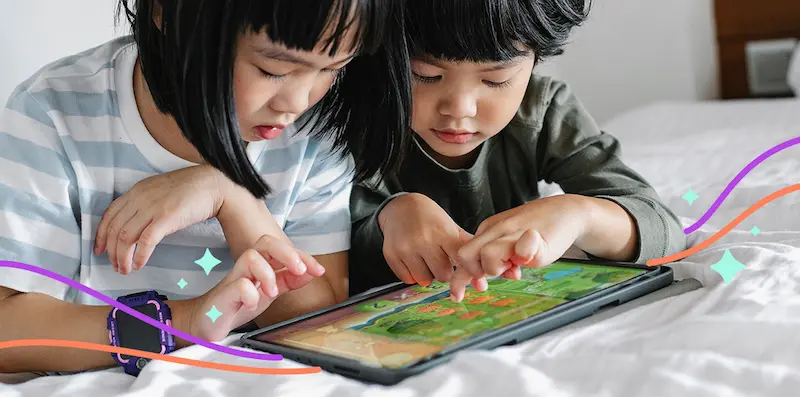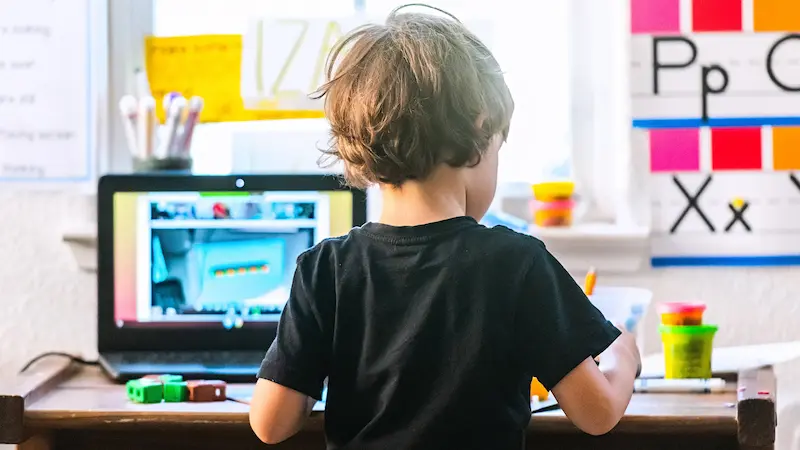In the realm of early childhood education, the digital landscape has undergone a significant transformation. The emergence of free online resources has revolutionized the way kindergarten learning takes place. Today, parents and educators have access to a multitude of high-quality educational content, fostering a new era of learning possibilities for young learners.
Traditionally confined to physical classrooms, kindergarten education now extends beyond the boundaries of brick-and-mortar establishments. The integration of technology into learning curriculums has paved the way for interactive and engaging online platforms tailored for young minds. This shift has reshaped educational paradigms, encouraging a more dynamic and adaptable approach to teaching foundational concepts.
Table of contents
- Benefits of Kindergarten Online Learning
- Finding Free Online Learning for Kindergarteners
- Creating a Structured Learning Environment
- Interactivity in Online Kindergarten Learning
- Kindergarten Online Learning Challenges
- The Future of Kindergarten Online Learning
- Cost and Accessibility
- Adapting Kindergarten Online Learning for Special Needs
- Conclusion
- Frequently Asked Questions (FAQ’S)
Benefits of Kindergarten Online Learning
Access to High-Quality Educational Content
Online platforms curated for kindergarten education offer a plethora of engaging and educational content. From interactive lessons to captivating visuals, these resources cater to diverse learning strategies, fostering a more comprehensive understanding of foundational concepts. Additionally, they adapt to individual learning paces, allowing children to progress at their own speed while mastering essential skills.
Flexibility for Modern Lifestyles
The flexibility of online learning accommodates the demands of modern-day lifestyles. Parents and caregivers can tailor learning schedules to fit within busy routines, promoting a seamless integration of education into daily life. This adaptability not only enhances accessibility but also encourages consistent learning habits, creating an environment conducive to sustained academic growth.
Interactive and Engaging Learning
Utilizing multimedia elements such as videos, educational games for kids, and storytelling, online kindergarten learning captivates young learners’ attention. These interactive tools transform learning into an enjoyable experience, encouraging active participation and retention of knowledge. Moreover, they foster creativity and critical thinking by presenting information in diverse formats, making complex subjects more approachable for young minds.

Finding Free Online Learning for Kindergarteners
Trusted Educational Websites
Reputable educational websites designed specifically for kindergarten offer a wealth of free resources. Platforms like ABCmouse, PBS Kids, and Khan Academy Kids provide engaging activities aligned with early learning goals. Additionally, these platforms often feature progress tracking tools, enabling parents and educators to monitor a child’s development and adapt learning experiences accordingly.
Curated Apps and Games
Educational apps and games tailored for kindergarten learning can be found on app stores. Apps like Endless Alphabet and Sago Mini World provide entertaining yet educational experiences conducive to young children’s development. These apps often incorporate elements of gamification, fostering an immersive learning environment where children can learn through play.
Parental Guidance and Supervision
Active parental involvement is crucial in navigating online learning. Supervision ensures children’s safety, appropriate content consumption, and maximizes the educational benefits of online resources. Furthermore, parental guidance involves not only monitoring but also engaging with children, discussing their experiences, and reinforcing learning objectives through real-life applications.
Creating a Structured Learning Environment
Establishing a Daily Schedule
Setting a structured daily routine helps establish a sense of normalcy and consistency in a child’s learning journey. Balancing playtime, learning sessions, and breaks fosters a conducive environment for effective learning. Additionally, incorporating activities that promote social interaction, such as virtual playdates or cooperative learning games, enhances a child’s overall developmental progress.
Balancing Screen Time
While online learning is beneficial, maintaining a healthy balance of screen time is essential. Incorporating offline activities, outdoor play, and family interactions ensures a holistic developmental experience. Encouraging hobbies like drawing, reading physical books, or engaging in creative arts helps diversify a child’s experiences and prevents excessive reliance on screens.
Parental Involvement
Engaging with children during online learning sessions reinforces their understanding of concepts. Actively participating, asking questions, and providing guidance strengthens the learning process. Moreover, discussing real-world applications of learned concepts cultivates critical thinking skills for kids and problem-solving skills, making education more relevant and impactful.
Interactivity in Online Kindergarten Learning
Educational Games and Activities
Engaging children in educational games and activities enhances their cognitive skills while making learning enjoyable. Activities focused on shapes, colors, letters, and numbers foster foundational knowledge. Additionally, collaborative games that encourage teamwork and communication contribute to a child’s social development, reinforcing essential skills beyond academic learning.
Virtual Storytime and Storytelling
Virtual storytelling sessions spark imagination and creativity in young minds. Access to a variety of stories cultivates a love for reading, nurturing language and comprehension skills. Encouraging children to participate actively in storytelling, whether through role-playing or creating their narratives, fosters their creativity and communication abilities.
Engaging Videos and Animations
Carefully curated educational videos and animations complement learning by visually explaining complex concepts in an understandable and entertaining manner. These visual aids reinforce verbal instructions, making abstract concepts more tangible for young learners.
Moreover, interactive videos that encourage children to follow along with actions or solve problems actively engage them in the learning process.
Kindergarten Online Learning Challenges
Screen Time Management
Monitoring and managing the duration of screen time is a challenge in online learning. Implementing structured schedules and incorporating offline activities helps mitigate this issue.
Additionally, setting clear boundaries and encouraging breaks during online sessions ensures that children have a balanced approach to technology use while engaging in diverse activities for holistic development.
Ensuring Child Safety Online
Safeguarding children from inappropriate content and online threats requires constant vigilance. Utilizing parental control settings and guiding children on safe internet practices are essential. Moreover, fostering open communication about online safety and regularly reviewing online activities helps children develop responsible digital behavior.
Balancing Online Learning with Play
Maintaining a healthy balance between online learning and unstructured playtime is crucial for a child’s holistic development. Encouraging imaginative play and physical activities complements online learning experiences. Additionally, incorporating hands-on activities that reinforce online lessons, such as science experiments or art projects, reinforces learning while promoting creativity and exploration.
The Future of Kindergarten Online Learning
Advancements in Technology and Trends
Continued advancements in technology, including AI and immersive learning experiences, will further enhance the efficacy of online kindergarten education. Virtual reality (VR) and augmented reality (AR) applications will likely play a more significant role in creating interactive and immersive learning environments, providing children with hands-on experiences beyond traditional methods.
Global Accessibility of Online Education
Online learning has the potential to bridge educational gaps globally, providing access to quality education for children worldwide. Initiatives focused on making educational resources available in multiple languages and catering to diverse cultural contexts will contribute to a more inclusive educational landscape, empowering children from different backgrounds to learn and thrive.
The Evolving Role of Teachers
Teachers serve as facilitators, guiding and supplementing online learning experiences with their expertise, nurturing social and emotional development alongside academic growth. As technology continues to shape education, educators will adapt their teaching methods, emphasizing personalized learning approaches and fostering a supportive learning environment that nurtures each child’s unique abilities.
Cost and Accessibility
Free vs. Paid Online Learning
While free resources abound, paid subscriptions may offer additional features and content. However, numerous free resources cater to high-quality education for families with budget constraints.
Additionally, exploring trial versions or free periods offered by paid platforms allows families to assess whether investing in premium content aligns with their child’s learning needs.
Resources for Low-Income Families
Organizations and initiatives provide access to free or subsidized technology and internet services, ensuring equitable access to online learning for low-income families. Furthermore, community partnerships and government initiatives aimed at providing educational resources and devices to underserved communities play a crucial role in narrowing the digital divide and promoting equal opportunities in education.
Bridging the Digital Divide
Efforts aimed at providing equal access to technology and internet connectivity are imperative in narrowing the digital divide among communities. Collaborations between public and private sectors, along with educational institutions, can implement initiatives like providing Wi-Fi hotspots, distributing devices, and offering digital literacy programs to empower underserved populations.
Adapting Kindergarten Online Learning for Special Needs
Inclusivity and Accessibility
Online resources tailored for children with special needs foster inclusivity, offering adaptive tools and content to accommodate diverse learning requirements. These resources encompass various learning styles, sensory needs, and assistive technologies, ensuring that all children have access to educational materials that suit their individual needs.
Resources for Special Education
Specialized platforms and apps cater to various learning disabilities, offering tailored support and resources for children with special needs. These platforms may include features such as audio descriptions, visual aids, or interactive elements designed specifically to support children with different learning challenges, fostering a supportive learning environment.
Parental Support
Parents play a crucial role in advocating for their child’s unique learning needs, collaborating with educators and utilizing available resources for optimal support. Building a strong partnership between parents and educators ensures that children with special needs receive personalized attention, accommodations, and strategies that cater to their learning styles and abilities.
Conclusion
The landscape of kindergarten learning has been significantly transformed by the integration of free online resources. With careful selection, parental guidance, and active participation, online learning offers an enriching and accessible avenue for young learners’ educational journey. Embracing the opportunities presented by online education while addressing its challenges is key to unlocking the full potential of early childhood learning in the digital age. As we move forward, a collaborative effort from educators, parents, and policymakers will be essential in ensuring that online learning remains inclusive, innovative, and supportive of every child’s educational needs.
To get your hands on more educational and free resources on coding for kids, robotics for kids, financial education for kids, etc., do check out the BrightCHAMPS Page now!
Frequently Asked Questions (FAQ’S)
A1. There are several excellent educational games suitable for 5-year-olds. Some popular choices include “ABCmouse,” “Lego Duplo World,” “Endless Alphabet,” “Toca Nature,” and “Think & Learn Code-a-pillar.”
A2. For young children, the American Academy of Pediatrics recommends no more than one hour per day of high-quality screen time for kids aged 2 to 5 years old. However, this should be balanced with other activities like physical play, reading, and social interaction.
A3. Educational games can be valuable supplements to traditional schooling but typically cannot fully replace it. While these games can reinforce certain skills, they may not cover all aspects of a comprehensive education such as social interaction, hands-on experiences, and a structured curriculum.
A4. Yes, there are educational games designed to promote multilingualism. Apps like “Duolingo,” “Little Pim,” and “Gus on the Go” offer fun activities and lessons in various languages, aiding children in learning new languages.
A5. Parents can monitor and limit screen time by setting clear rules and using parental control features on devices. Establishing a schedule, engaging in joint activities, and leading by example can also help manage and limit screen time effectively.


 We are an army of educators and passionate learners from BrightChamps family, committed to providing free learning resources to kids, parents & students.
We are an army of educators and passionate learners from BrightChamps family, committed to providing free learning resources to kids, parents & students.








